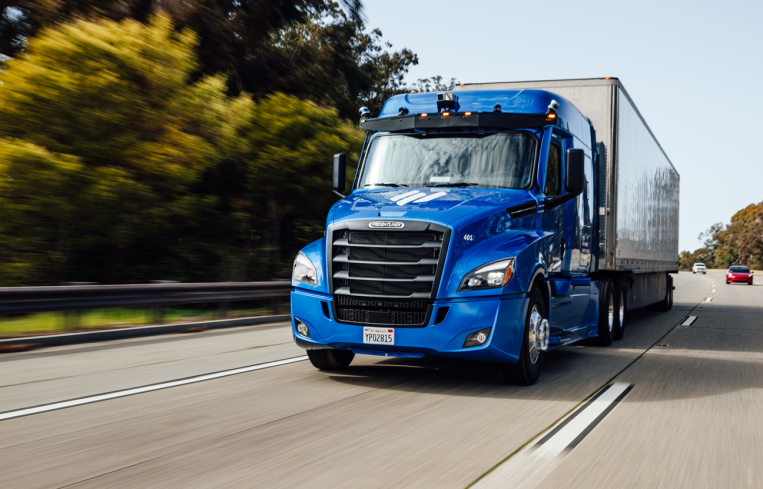Self-Driving Trucking, E-Commerce Industries Compete for Industrial Space
By Mark Hallum February 28, 2022 5:07 pm
reprints
It’s never easy finding parking, and the fledgling autonomous truck industry is feeling it on a major scale.
The advent of self-driving trucks is motivating a land grab for transportation hubs near major cities, particularly across the Sun Belt states, but finding suitable land has been a challenge.
Two companies have teamed up to tackle the problem.
San Francisco-based Embark Trucks, a self-driving truck startup that went public last year, has partnered with Philadelphia real estate firm Alterra Property Group to form a network of outdoor storage sites that will serve as transfer points.
In September 2021, Embark said it would seek up to 100 transfer sites to be operated by transportation company Ryder. With the partnership in place, the transfer sites will be leased from Alterra.
“Industrial outdoor storage as an asset class has yet to be institutionalized, making it difficult for tenants with specific and nationwide real estate needs, like Embark, to systematically access a network of suitable sites,” Leo Addimando, managing partner of Alterra Property Group, said in a statement.
Founded in 2016, Embark has worked to develop software to make trucking safer and more efficient while tapping into a nearly $700 billion annual market that dominates 80 percent of the nation’s freight.
Embark launched its first trucking route between Los Angeles and Phoenix in 2019, and five companies signed on to use it, though at that time the industry was using Level autonomous vehicles. As the Embark network has evolved to include additional routes, it also needs nationwide coverage to support the nation’s largest fleets as they purchase, own, and operate trucks equipped with Embark’s technology, dispatching them between these transfer points.
But after two years of pandemic-fueled demand for industrial and logistics space, the competition for these spaces — particularly in the environs of highly trafficked cities — is intense.
Strict zoning ordinances that prohibit truck storage add an extra challenge specific to the trucking industry.
But Alterra’s experience could give Embark a leg up in the race for industrial space. “We have the ability to provide Embark a strategic advantage when it comes to identifying, securing, and developing a nationwide network of autonomous-ready sites,” Addimando said in the statement.
Alterra will have competition. In December 2021, logistics firm Zenith IOS launched a partnership with JPMorgan Global Alternatives to buy about $700 million worth of industrial outdoor storage, of which $150 million has been spent so far, according to The Wall Street Journal. Atlanta-based Stonemont Financial Group, likewise, partnered with Cerberus Capital Management to invest in the sector last year.
But while investors are working against the clock to secure land in strategic locations not already zoned against truck storage, they are also having to compete against e-commerce interests that hope to use the land to warehouse products themselves, The Wall Street Journal reported.
Embark, which went public in a $5 billion deal in November, according to The Wall Street Journal, is aiming to have its first fleet of trucks navigating the highways of states such as California and Texas as early as 2024. The autonomous trucks would only take the highways, however, as the transfer points will be needed for human truck drivers to take over before entering cities.
Mark Hallum can be reached at mhallum@commercialobserver.com.



